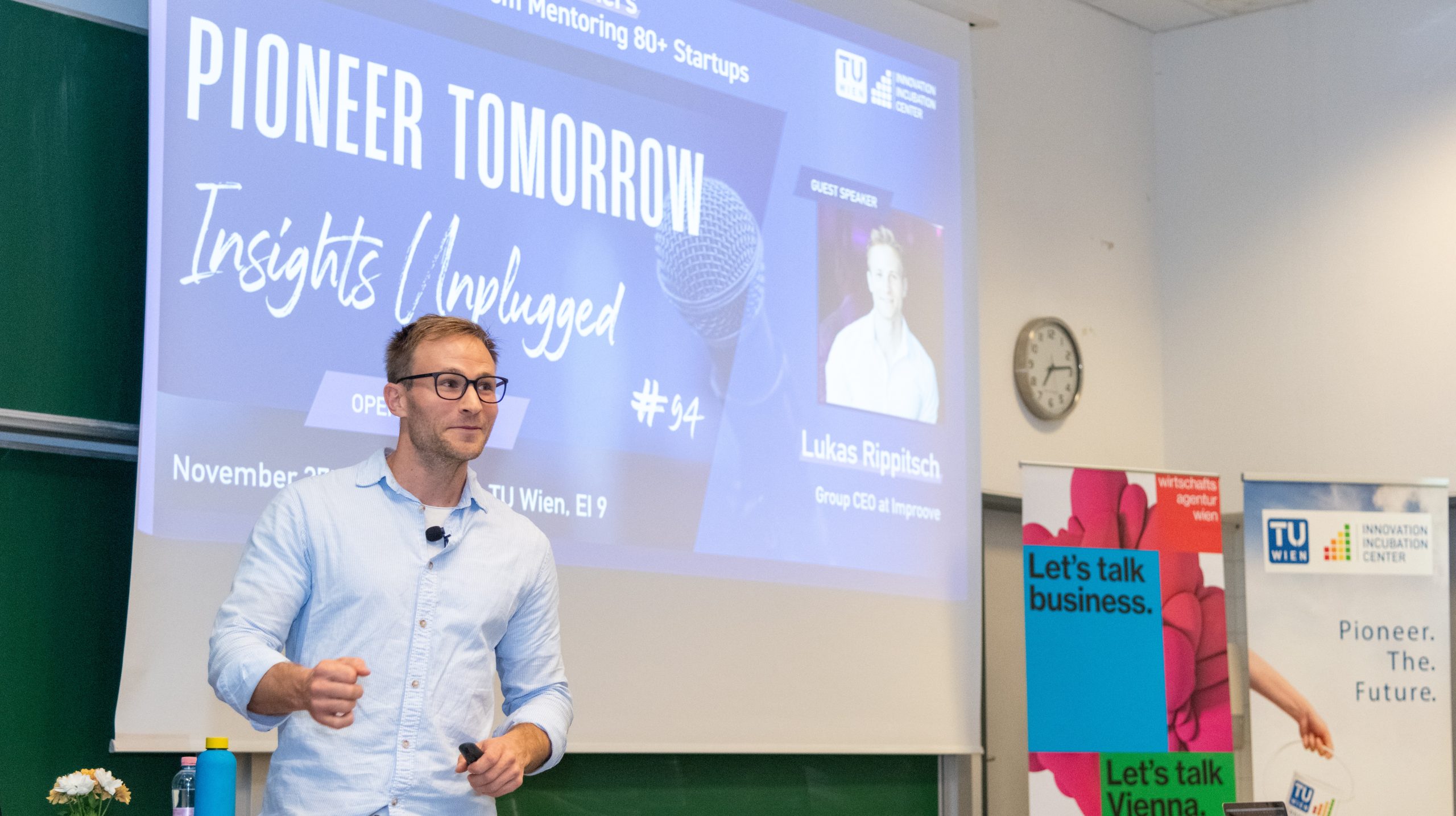At the “Pioneer Tomorrow #94” event at TU Wien, serial entrepreneur Lukas Rippitsch offered candid insights into his experiences as a founder and mentor to over 80 startups. His key message was clear: failure is inevitable—and essential for growth.
Start with Why
Rippitsch shared his journey through various ventures, including the insolvencies of HROS and Talentuno and the failed funding rounds for Future HROS Ventures and Data Valley. Despite
these setbacks, he also achieved successes such as Improove and Digitalisten GmbH, the latter culminating in an exit with 15 full-time employees.
Rippitsch’s takeaway: “Failure is where you learn the most.” This learning process often starts with the fundamental question: why do you want to start a company? Cool ideas, shared visions
or friendships are rarely enough. “The most important thing is to know what success means to you – and to set clear goals,” he emphasized.
Teamwork Is The Key To Success
Rippitsch highlighted the critical role of the founding team. Teams with more than three founders, he noted, have better chances of securing venture capital and becoming profitable.
However, he stressed the importance of including someone who challenges the group: “The person who drives us nuts pushes us to deliver more. Being comfortable and performing don’t go hand in hand.”
The startup journey, however, is far from linear. “At every stage of the startup cycle, the team’s setup needs to adapt. It’s almost impossible for one person to excel all the way through. Ego is often the reason why startups fail to get through funding rounds,” he said. Rippitsch described the typical hurdles founders face at different stages of the startup journey. In the incubation phase, many startups struggle to build a solid team and distribute equity – a step where “fifty percent of startups fail because they’re not honest about what they really want”. In the pre-seed stage, challenges include developing a product that people are willing to pay for and setting up employee incentive programs. As startups move into the seed stage, revenue generation and management structures become critical. In Series A and B funding rounds, clear role definitions and a long-term vision take center stage.
Align On Your Expectations
To address these challenges, Rippitsch recommended agreeing on what success looks like, communicating openly without ego, and planning for the marathon: “Cut the bullshit and optimize for the long term.” He also emphasized the importance of allowing yourself to fail and reflecting on those failures.
Rippitsch concluded with a striking insight: “Find out what you really want and communicate it clearly. There’s no room for unspoken expectations. In one of my companies, success ended friendships because we failed to address our goals early on”.
With his frank and pragmatic approach, Lukas Rippitsch highlighted how challenges foster personal and professional growth – and underlined the need to chart your own course.

